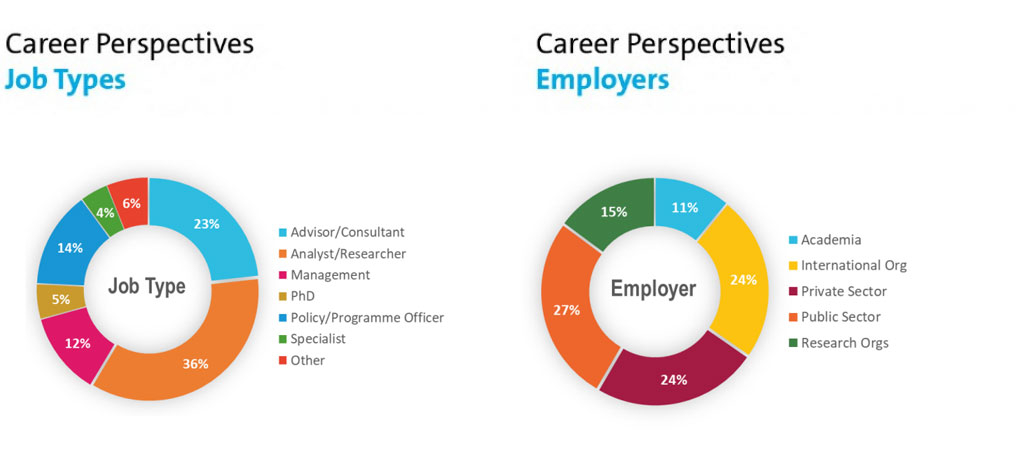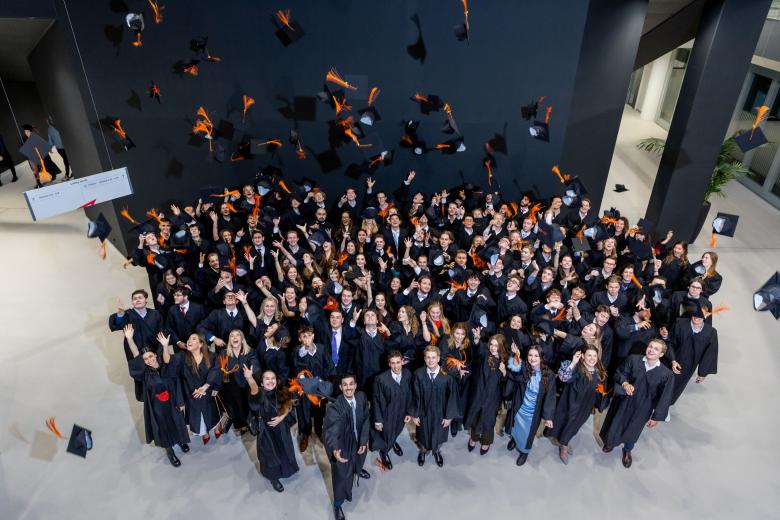Your future
Graduates of the Public Policy and Human Development programme are academically trained policy analysts. Since its launch in 2005, over 1,300 students have successfully graduated from the programme, creating a vibrant alumni network. The master programme programme has a strong history of providing employability-related resources to its students during their studies at Maastricht University.

Career prospects
Our graduates are trained policymakers and analysts, who go on to work in public policy and academia or for NGOs and consultancies. Thanks to the skills acquired in the programme, they can identify and review different policy options and implement the adequate policy.
Our alumni work all over the world in public and private institutions of both economically strong and economically unstable countries, including national, regional and local governments, ministries, regional organisations, NGOs, international organisations, pension funds and consultancies.
Meet our alumni
Nassim Abba, 2016-2017
Gustavo Novaes, 2015-2016
Fanny Trang, 2015-2016
Rodolpho Zannin Feijó, 2015-2016
Lea-Maria Löbel, 2015-2016
Employers
A 2019 alumni census conducted among graduates revealed that 58 per cent of graduates served in an analytical capacity, as advisors, analysts, researchers or consultants, while 30 per cent served in an operational role as a manager, or as a desk officer with responsibility for a case or programme.
Example of employers:
- UN bodies: the WFP, UNICEF, ILO, IOM,
- Multilateral development banks and technical development support agencies: World Bank, Asian Development Bank, European Central Bank, GIZ,
- regional governance bodies: European Commission, European Parliament
- government ministries and civil services in the following countries: Ecuador, Germany, India, Netherlands, New Zealand, Switzerland, Uganda, UK, and USA,
- Research-based organisations and academic institutions: Leiden, LSE, Maastricht, McGill and Sydney, Berlin Institute for Population and Development, GIGA, EPRI, IIED, UNU-MERIT, UNU-CRIS, and UNU-WIDER.

In this section, we present the average employability data for all programmes of the Maastricht University School of Business and Economics (Alumni survey from 2024). In our latest survey, 78,0% of our graduates indicated they would choose the same study programme again! For detailed information per programme, please see the bottom of this page.
Employment rate
| After 1,5 years | After 5 years | After 10 years |
| 97,5% | 98,2% | 100,0% |

Median gross monthly income
| After 1,5 years | After 5 years | After 10 years |
| € 3.300,00 | € 5.000,00 | € 6.300,00 |

Working location of our alumni 1,5 years after graduation
| Country | % |
| the Netherlands | 45,2% |
| Germany | 28,5% |
| Belgium | 10,0% |
| Other EU country | 8,8% |
| Outside of the EU | 7,5% |
Average employability data 5 years after graduation per programme
Please note that some programmes did not have enough responses to allow a satisfactory result and are therefore not included in this list.
MSc programme | % employed | Median gross monthly income | Would choose same programme again |
| Econometrics and Operations Research | 100% | € 3.665,00
| 81% |
| Economics | 100% | € 3.700,00 | 75% |
| Financial Economics | 100% | € 5.500,00 | 62% |
| International Business (all specialisations) | 98% | € 5.000,00 | 76% |
| Learning and Development in Organisations | 95% | € 4.000,00 | 90% |
| Global Supply Chain Management and Change | 100% | € 5.100,00 | 90% |
| Sustainability Science, Policy and Society | 100% | € 4.000,00 | 80% |
| Public Policy and Human Development | 97% | € 4.400,00 | 86% |
